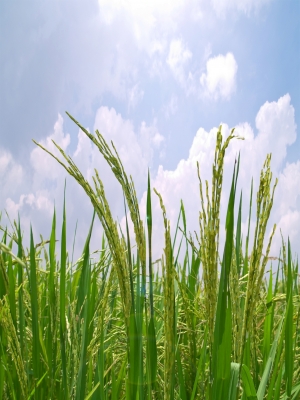 The Lao People’s Democratic Republic is keen on importing various Philippine food products, particularly rice and fashion accessories.
The Lao People’s Democratic Republic is keen on importing various Philippine food products, particularly rice and fashion accessories.
Speaking during a recent business matching and meeting, Miguel Varela, president of the Philippine Chamber of Commerce and Industry (PCCI), said both countries would benefit from tapping potential areas in food processing and production, mineral exploration and metal products, fashion accessories, automotive, cosmetics, and personal care products, among others.
To this end, he said major business groups of both countries have signed an agreement to establish the Philippine-Lao Business Council that seeks to strengthen and expand trade ties between the two countries.
“We will be exchanging information on particular products that each country will be needing from each other…This should enable us to look at how we can network our SMEs (small and medium enterprises) to be able to gain entry to each other’s market and in the larger ASEAN,” he noted.
“It is high time we enhance our economic relations and business-to-business activities to maximize opportunities offered by the changing global economic landscape.”
The Lao PDR delegation of about 40 representatives from business and government was headed by Prime Minister Thongsing Thammavong.
Thammavong said the Philippines is among countries where Lao PDR has signed bilateral agreements on trade and investments promotion.
“In this globalizing world, we shall never ignore the importance of international cooperation. Toward this end, Lao PDR gives great importance to widening arenas in regional, sub-regional and bilateral levels,” he said through his interpreter during a business meeting.
Although Lao PDR is classified among the world’s least developed countries, the Prime Minister boasted its strategic geographical location could provide vast potential linkages with larger markets in the sub-region in ASEAN which has a population of more than 500 million.
Metalworking sector
In another development, the local metalworking sector is coming up with a value chain analysis study as part of its efforts to increase exports particularly to the European markets.
The sector is being assisted in this study by the Center for the Promotion of Imports from Developing Countries which is meant to revisit how the Philippines can start re-building its industrial and manufacturing capabilities, particularly the engineering and metalworking sector.
“…The country should have a strong, vibrant metalworking and electronic sector for it to industrialize and modernize,” said Jimmy Chan, Philippine Exporters Confederation, Inc trustee of the metals sector.
Chan said the metals and engineering industry can be very promising and lucrative as it serves the needs of various industries of the economy as well as other allied industries. However, the sector has been neglected for a long time, he noted.
He attributed the slower economic growth to the country’s failure to build a strong industrial base.
In the global context, the allied industries in this sector account for about half of the goods produced in the manufacturing sector and more than half of all merchandise exported worldwide in terms of value, he said.
Paddy Rice by Exsodus
Image courtesy of www.freedigitalphotos.net





